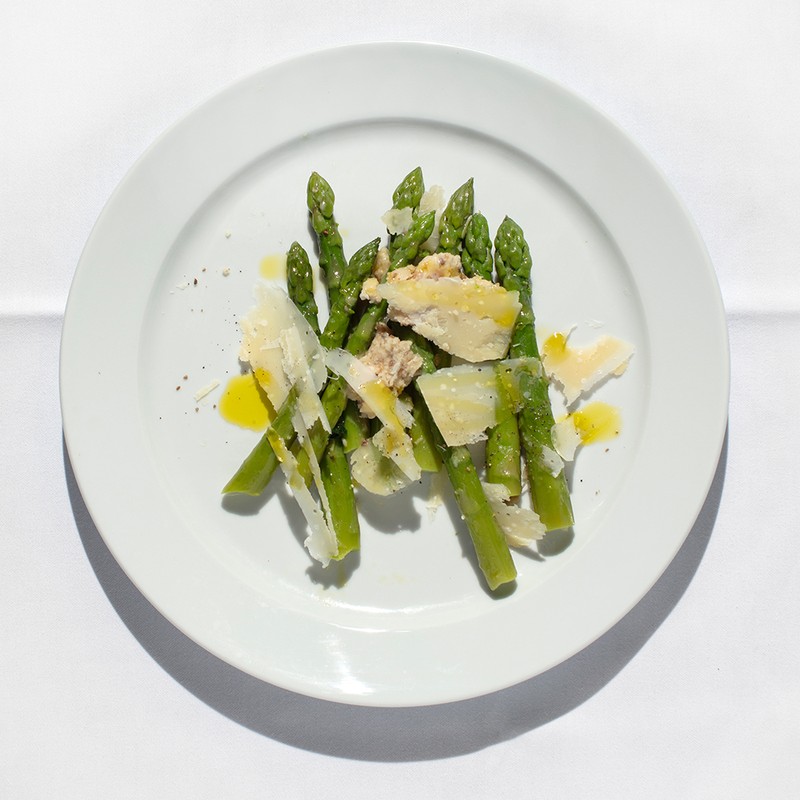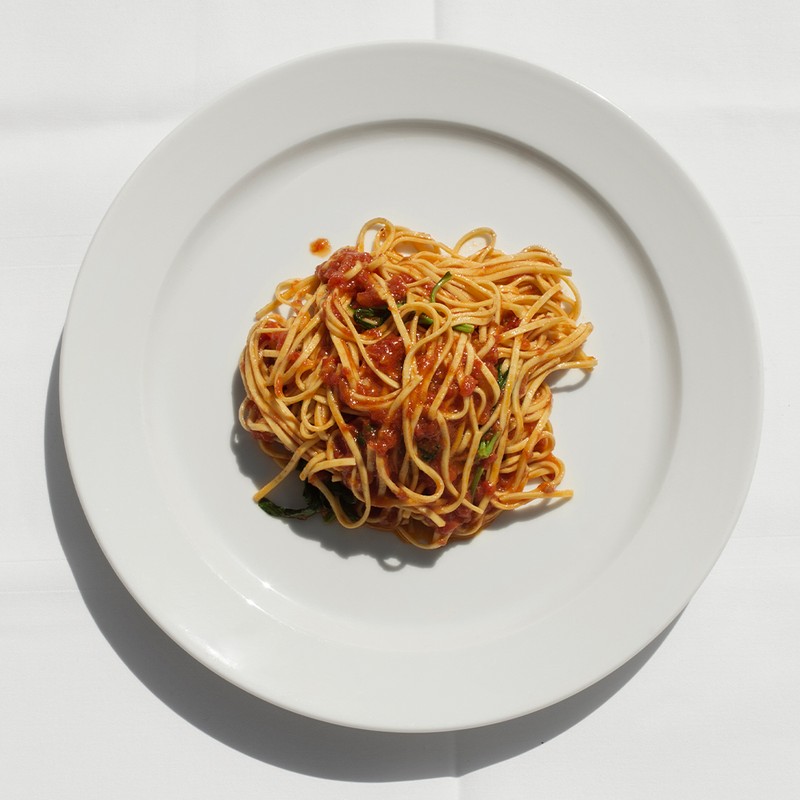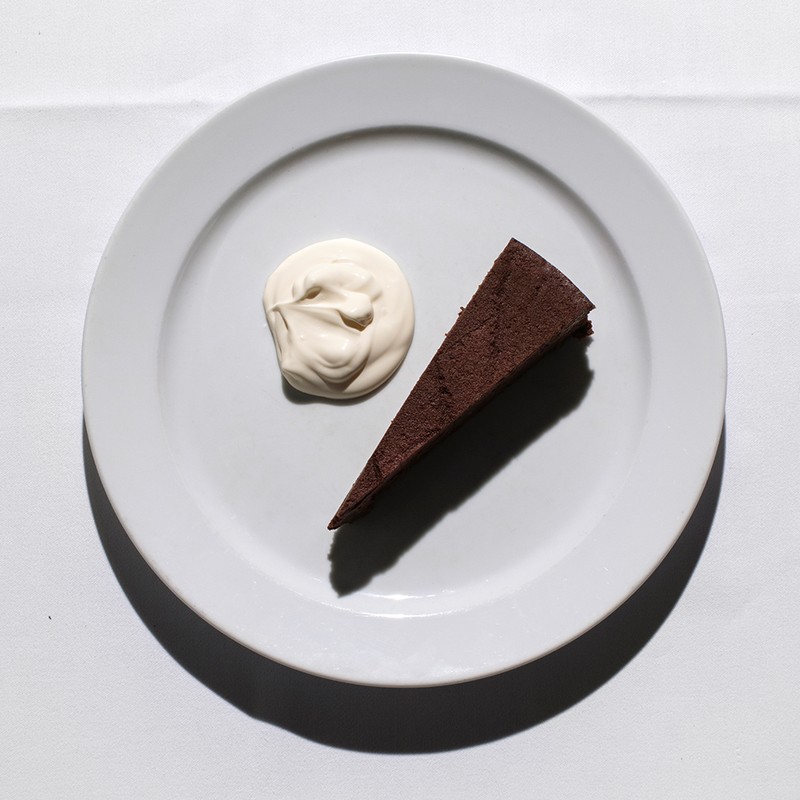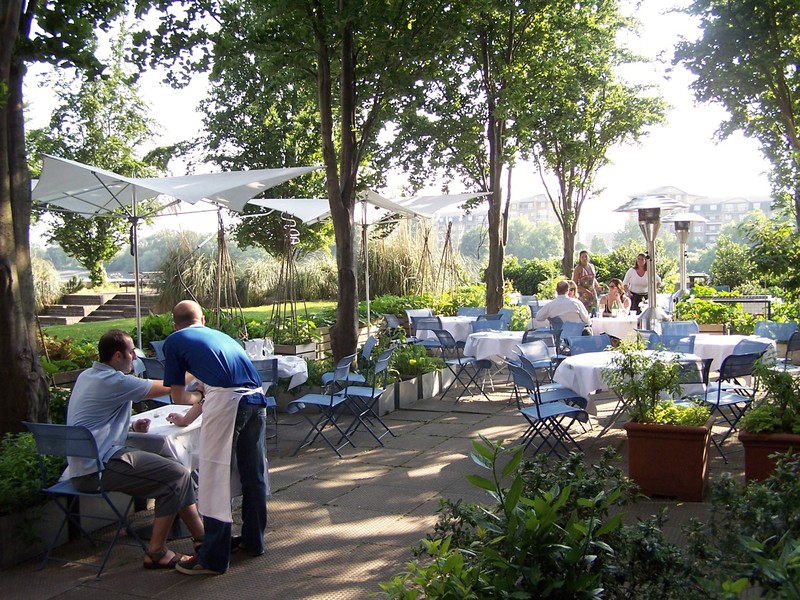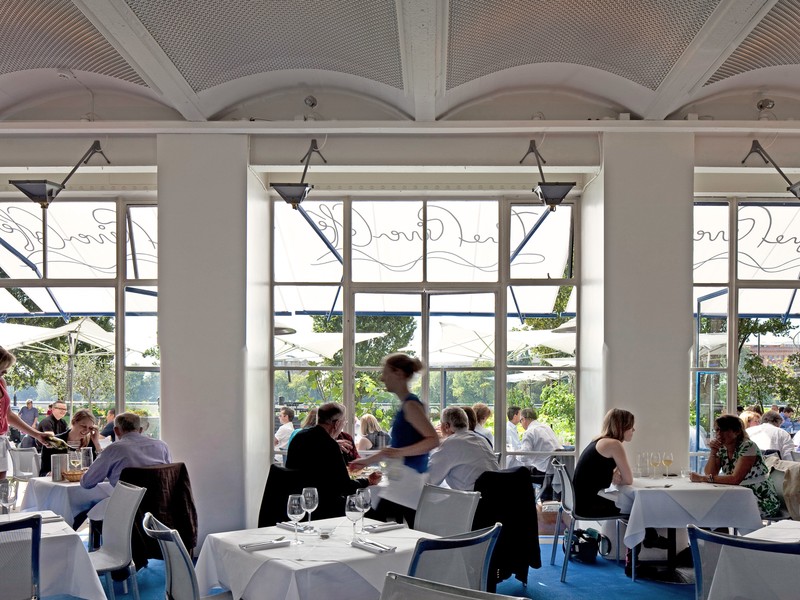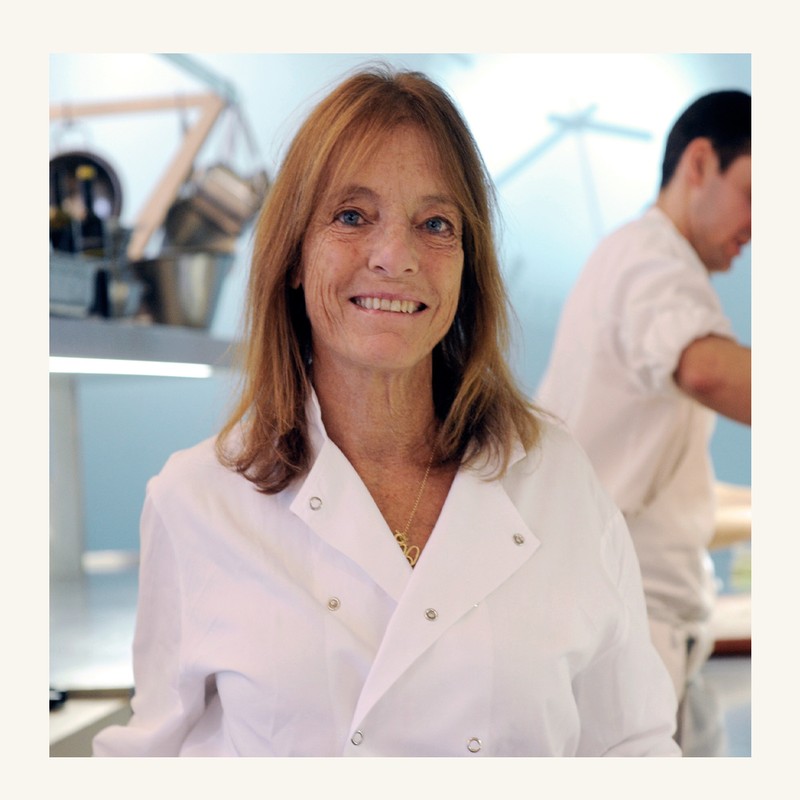
Chapters In My Life: Ruth Rogers
Chapter One: Childhood Years
“I was born in 1949 in Monticello, a very small town in the Catskills mountains, about 100 miles north-west of New York City. Both my parents were children of immigrants who had come to the States during the Ellis Island influx from Europe in the early 20th century. The second generation were all professionals – my father was a doctor and my mother was a librarian. Both were very politically engaged and socially minded, and were involved with the school board and the anti-war movement. In fact, my father had spent some time in Spain during its civil war in the 1930s. When I was about 12, we moved a little further upstate to Woodstock when my father got a job in a cancer research clinic there. We lived in a house by the river and, by this time, my brother and sister, who are eight and six years older than me, had left to go to university. Woodstock was a beautiful town and very much an artists’ colony in those days, as a lot of artists had left New York to live there.
“It was an upbringing where we ate well, not very sophisticated food, but it all came from local shops or farm shops, and it was always very fresh and bought on the day we were eating it. Our family meals were all about talk and we’d sit down at the table and discuss politics and my father would tell stories – it was a very ‘talkie’ household and conversation was hugely important. My parents were very social and had lots of friends, threw cocktail parties and my father played poker on a Friday night. It was all really nice.
“In the summer vacations, like most American children, I was sent to summer camp and when I was 16, I went to one on a ranch in Colorado, near Aspen. It was actually a school and I absolutely fell in love with it and asked my parents whether I could go there for my last two years of high school. It was founded by people who believed in a liberal education, so we did academic lessons until about 2pm and then we had work projects like cleaning out the stables or cooking dinner for all the students. My time in the wild west was really formative and it gave me a political interest.”
Chapter Two: My Bob Dylan Anecdote
“In the early 60s, Woodstock went from being an arts town to a music town – this was long before the festival in 1969. My parents’ generation were artists but the next generation were musicians. Albert Grossman, Bob Dylan’s manager, bought a large house there and you had people like Creedence Clearwater Revival, The Band, and Peter, Paul and Mary all living there. A couple of days a week after school, my friend and I would take the school bus into town and do our homework in a café. One afternoon, we saw Bob Dylan sitting a few tables away; we kind of knew who he was. Anyway, he sent us a note scribbled on the back of a napkin: ‘Do you two want to come and watch me and the band rehearse?’ We sent a note back saying: ‘No, not really…’ I wish I’d kept that piece of paper!”
Chapter Three: Moving To London
“When I left school in Colorado, I went to Bennington College in a small town in Vermont. While I’d been really happy to get into such a good college, I wasn’t happy there and felt very isolated in such a small place in the country. It was 1968 and a very tumultuous time in the world, and I didn’t want to be stuck there with the Vietnam War, assassinations and free speech issues going on. My parents let me take a term off to come to London to study. I lived with a very nice family in Muswell Hill and I was just so happy to be here. There were a lot of Americans here who became very involved in the Vietnam War and we would demonstrate outside the US Embassy in Grosvenor Square, not that you had to be that politically involved to go there.
“My parents expected me to come home after a term, but I wasn’t ready for that. I knew the only thing I could do to stay was go to school so I applied to the London College of Printing. Even though I had no knowledge of typography and had not done any graphic design, I had done a children’s book which I took along to my interview. The head loved it and they accepted me. I loved my three years there – there was such a great mix of people. When I left, I got a job in the art department at Penguin Books as David Pelham’s assistant, which was an amazing job to land myself.”
Chapter Four: Meeting Richard and Life in Paris
“In late 1969, I was introduced to Richard [Rogers, the architect] at a friend of my parents’ house. I fell madly in love with him and we set up together in a little flat. He was quite a bit older than me and had three children so, at age 21, I had three stepchildren and all that entails. We had wonderful times together and used to go and see his family in Florence where he grew up. In 1971, Richard and the Italian architect Renzo Piano entered the competition to design the Pompidou Centre, which they won, so while I continued to work at Penguin he’d commute back and forth to Paris – because like every competition we never thought it would actually happen. However, when things moved on, I went to Paris to live with him.
“I started working in the office, helping them to organise things and build a team. For Richard and Renzo, it was all exhausting, confusing, terrifying, yet exciting. There was a bit of antagonism against a Brit and an Italian, aged 36 and 34 respectively, winning this huge competition in France for its most important cultural building. Despite the insecurity and wondering how this huge project was ever going to happen, there was real joy being there.
“Richard and I loved Paris, the French, the food and the ease with which we could travel. His children would come to stay, or we’d get the train to Saint-Tropez in the winter, or to Florence to see his cousins. I’d never really been on a train or slept on one; I didn’t even know you had to book a ticket.
“While I had always loved to cook, this is where I started doing a lot more and actually went to some cookery lessons with Louisette Bertholle who co-wrote the very famous 60s cookery books Mastering the Art of French Cooking with Julia Child. I only went to three of her lessons at her house and she was quite terrifying! I also read a lot of cookbooks. There were a lot of people living near us and working with us who had left their families, including Renzo, so I used to cook for them. We also ate out all the time – when I look back at our cheque stubs, they are all for the restaurants we went to.
“Richard and I got married in 1973 and had our first child, Roo, in Paris – he was born in a hospital in Saint-Cloud in the January of 1975.”
Chapter Five: Returning To London Via LA
“The Pompidou Centre opened in 1977. We’d been living in Paris for five years, Richard was 44 and there was this feeling of what next? Do we stay, do we come back to London, do we go somewhere else far away? Because of Richard’s children, we really wanted to be in London and his parents were here too. But first, we decided to take break and we went to LA. Life was fun there: Richard taught at UCLA, I loved going to the beach with my two-year-old, and it was nice for me to be back in America, especially as my brother lived in LA too. The food scene was really exciting in California at the time – there was Alice Waters who had opened Chez Panisse in Berkeley, Wolfgang Puck had Spago, and there was this real energy. We came back to London in the early 1980s and our second son, Bo, was born in 1983.”
Chapter Six: Starting The River Café
“Richard didn’t want an office in Mayfair. He wanted a community and we even thought of moving out of London and having an architects’ practice in the country. But eventually, in 1983, together with his partner John Young, he found Thames Wharf Studios in Hammersmith, which was a very unfashionable part of town then. There were already some graphic designers, picture framers and other architects there, but zero else. However, there was great potential. Richard always wanted a restaurant, or not quite a restaurant as such, but somewhere the community could eat.
“Rose Gray was a family friend. She was 15 years older than me, Richard’s generation, and they’d been at art school together in Guildford. She was also a great friend of his ex-wife’s and her children were roughly the same age as my stepchildren. While we were in Paris, Rose had gone to live in Lucca in Tuscany, where she developed a passion for Italian food. She then spent some time helping her friend Nell Campbell set up the Italian-style restaurant Nell's Club in New York. But she was back living in London and I asked her to come and see this tiny space by Richard’s office, and that is how it all started.
“We applied for planning and for an alcohol licence, but we were only allowed to serve the people who worked in the community and only at lunchtime; we couldn’t be open to the public. We went to the Reject Shop and spent £25,000 on basic kitchen equipment, which for us was a lot of money. Then Rose and I, together with a washer-up and a waiter, just did it. I would make sandwiches and she would make a pasta dish, and the next day we swapped roles. I’d never worked in a restaurant and I didn’t know what I was doing really. Rose had some experience but neither of us really knew that much. But out of restrictions comes freedom and things grew from there: we opened in 1987, by 1988 we were open to the public for lunch, and the year after for lunch and dinner.”
Chapter Seven: The River Café Cook Book
“In 1991, my friend and agent Ed Victor said to me: ‘Come on Ruthie, it’s time for a book.’ I remember saying to him that we were chefs, not cookbook writers, because in those days we thought you were one or the other. However, we realised that we had a huge repertoire of recipes because, as the restaurant grew, we had to teach our chefs – the likes of Sam Clark, Ed Baines, Hugh Fearnley-Whittingstall, Jamie Oliver. So we wrote our first book, the blue book, which was published in 1995 and was the first of many over the years.”
Chapter Eight: The Death Of Rose
“Rose was diagnosed with breast cancer in early 2001. She faced it with energy and found that the best way to get through the chemo was to eat and work. There was a period or about five years after that when she was fine, the chemo had worked and we wrote two more books. However, it spread to her oesophagus and that was the scary bit, as it was secondary cancer. She lost her voice, and she would stand at the pass and we’d have somebody shouting out or directing for her, and that was a very challenging time. Eventually, she got a brain tumour and passed away in February 2010. The year before she died was tough. We’d been writing our Classic Italian Cookbook – in the past, we had always kept ourselves out of our books, as we never wanted to say, for example, that we were sitting under a lemon tree and that is how we got inspiration for this lemon pasta recipe. We’d say here’s the recipe, here’s the picture, go and make it! We didn’t need all that chat. But this one was going to be different. We’d travelled all over Italy together and it was going to be the journey of two women who discovered Italy from Puglia to Piemonte.
“In the spring of 2009, it became clear that Rose could no longer come to the meetings about the book. I’d still go and show her everything, but I had to finish it on my own. Classic was published in September 2009 and I remember Rose couldn’t come to the party, but she came to see me before. It was very moving.
“We got through the death of Rose, but it was really terrible. I missed her, I needed her, I loved her, she was a friend, and it was like being a single parent in the restaurant with about 100 children to take care of. But with the help of everyone who worked there and the involvement of what became my very close team – two managers and two chefs became my Rose – we managed. Everybody says restaurants are so competitive and so tough, but I’d get a call from Giorgio Locatelli who wanted to come and eat at the River Café, or I’d look up and see Jeremy King in the restaurant, or Rowley Leigh would book a table. Everyone was so kind and supportive.
“A couple of months before she died, Rose and I were awarded MBEs for our contribution to the industry in the New Year Honours. I was worried whether she’d make it to the Palace, so I called them and asked whether we could come in earlier, which they agreed to. When I told Rose the Palace had changed the date for our investiture, she said: ‘No, no, Ruthie, I’m not well now so let’s leave it for a few months and I’ll be better then.’ Of course, she never got there, and I went to the Palace with her husband.
“Ten years on I was awarded a CBE for services to the culinary arts and charity in the 2020 Queen’s Birthday Honours List, but who knows when that investiture will be…”
Chapter Nine: The Death Of Bo
“Just over a year and a half after Rose passed away, my youngest son, Bo, died suddenly in October 2011. He was just 27. He had been working in Richard’s office and he took a couple of months off as he hadn’t been very well and went to a village in northern Italy called Vernazza. Everyone knew him there and we went to visit him too. That autumn there were huge floods in the area; it rained so much that landslides came down from the mountains and the town was covered in rubble. He had to sleep outside on the balcony, and for some reason on his way home he had a seizure. So, within a short period, I had two terrible deaths to deal with. Of course, one never gets over something like the death of one’s child.”
Chapter Ten: Shop The River Café
“If you’d asked me a year and a half ago if I’d ever have a shop, I would probably have said no – and as for an online shop, absolutely not. When we were forced to close during the first lockdown last year, we furloughed most of the staff but we had so much stock left over that a few of us in my core team, including a technical person, decided to earn money for the restaurant and all the people who work for us. We used a professional photographer and designer to create our website, and we started in a very small way with bags of pasta and some cheese we had left over. Then we found our butcher and fishermen wanted to join us. We began cooking in our houses, which was a bit untenable, so a few of us, while keeping very distanced, came into the restaurant and we made tomato sauce, then we made pesto.
“When we reopened the restaurant last July, we could have just stopped. But we decided to continue with it, as we enjoyed it and it was challenging. We brought in someone who used to work for us to project manage and do a proper online shop. We completely redid the website, the packaging and design, so by the time we had to close again we were ready for it. I wanted the staff to work, for their mental health, and we worked in bubbles. Even though the restaurant is open again, our site is doing so well, certainly well enough to contribute to the turnover and to be a thriving business which we all love.”
The Next Chapter…
“Looking ahead, I really want to expand the shop, the deliveries and do more non-perishables. We are also doing more of what we call River Café Offsite – not private dinner parties for ten in people’s homes, but big parties. We’ve done a wedding in Rome, one in the Cotswolds, the wrap party for the latest Star Wars movie – that kind of thing is worth it for us.
“I’m also doing a series of podcasts called River Café Conversations. It all came about with me thinking of what I could do that isn’t video, as everyone is doing video. About 15 years ago, Ian McKellen held a charity evening at our house – he did some Shakespeare and read a poem by Yeats, told some stories and played the piano. At the very end, he read a recipe from one of my books. That’s how I got the idea for my podcast guests to choose and read a recipe, which would lead into a conversation just about food. My first guest is Michael Caine, who reads the recipe for panna cotta with grappa, which is his favourite dessert when he comes to the restaurant. I’ve done 32 so far and have to do 48 in total. Other guests include Ralph Fiennes, Paul McCartney and so many more – all people who eat in the restaurant, and who like us and our food. They’ve all been so generous. My stepson Seb Rogers is producing them and they will hopefully be out in September.
“As with everyone, I’d like to go away to Tuscany but it’s been difficult planning a holiday. We’ve been going to the same house, which we’ve rented for the last 20 years, so we’ll see…”
Visit Shop The River Café
DISCLAIMER: We endeavour to always credit the correct original source of every image we use. If you think a credit may be incorrect, please contact us at info@sheerluxe.com.
